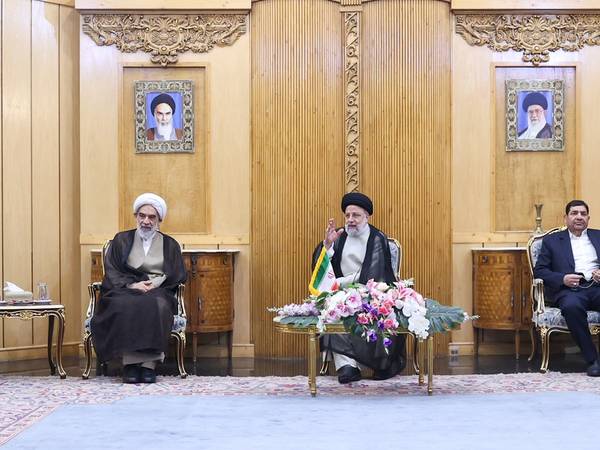Politicians across Iran’s Islamic regime persist in expressing alarm and profound disappointment with the government's performance, particularly concerning the nation's enduring economic crisis.
Former government spokesman Ali Rabiei has said in an article in Etemad Online website: "I would like to beg the government to stop making policies and decisions. The best thing they can do is doing nothing. In this way, not only things will not get worse, but at least the society will have some peace of mind."
Amid heightened tensions in the Middle East and a confrontation with Israel, Iran’s beleaguered currency has lost 25 percent of its value since early January, increasing fears of higher inflation, which already hovers around 50 percent.
Rabiei, who has a background as a high-level intelligence officer, highlighted the lack of trust society has in the government, citing divergent values. Meanwhile, the government continues to make decisions and enact resolutions that worsen societal chaos.
He said, "a glance at the society reveals that so many people are worried about the government's ad-hoc decisions and this has led to a deep feeling of insecurity among the people particularly in the urban society."
"Apart from concerns about their livelihood, everyone has many reasons to feel insecure. In such a situation, the government had better stop manipulating people's lives and disrupting their peace of mind," Rabiei said, adding that officials should stop talking too much. “Please don't do anything and we will take our hats off and respect you for leaving us alone."
Disappointment is also palpable within the conservative camp, to which the government belongs. Conservative figure Hasan Beyadi, close to Supreme Leader Ali Khamenei's office, expressed this sentiment in an interview with the conservative news website Nameh News: "Perhaps the government's best course of action is non-intervention in national affairs."
Beyadi lamented the lack of expert control over national matters, urging the government to recognize that political participation could address the current challenges. He highlighted the Raisi administration's failure to fulfill promises, such as currency stabilization, job creation, housing construction targets, and nuclear negotiations progress. "Unfortunately, the affairs of the nation are not being controlled by experts. And the government is not aware that the problematic situation can be improved by paving the way for people's political participation."
He was alluding to increasing repression and manipulation of elections that allow only hardliners to run for office and monopolize government offices.
Beyadi emphasized the impossibility of recovering from losses brought about by sanctions and criticized the government's handling of the industrial sector.
"The government's biggest and most basic mission was to provide essential commodities for the nation, supply water, power, and natural gas, and meet the nation's need for telecommunications. Even these would have been done better if the government did not intervene,” Beyadi said, adding that the government's most important missions were taking care of the country's foreign policy and economic policy particularly in the areas such as reducing inflation and unemployment rates and providing housing for the nation. But the government was not successful in tackling any one of those problems.
Although both Rabiei and Beyadi were referring to the presidential administration of Ebrahim Raisi, but the general public perceives serious economic and political issues symptomatic of the whole regime, headed and controlled by Supreme Leader Ali Khamenei.
Without naming the economic and financial conglomerates operating under the aegis of Khamenei's office, Beyadi said that the government's failure in many of those areas was because of the presence of major parallel economic organizations that are not answerable to anyone.
Beyadi's outlook on Iran's future seemed pessimistic as he doubted Raisi's chances of success in his final year as president without involving the people in decision-making and appointing skilled experts to key positions. He also suggested that Raisi might not secure a second term, amid persistently worsening socio-economic condition.
